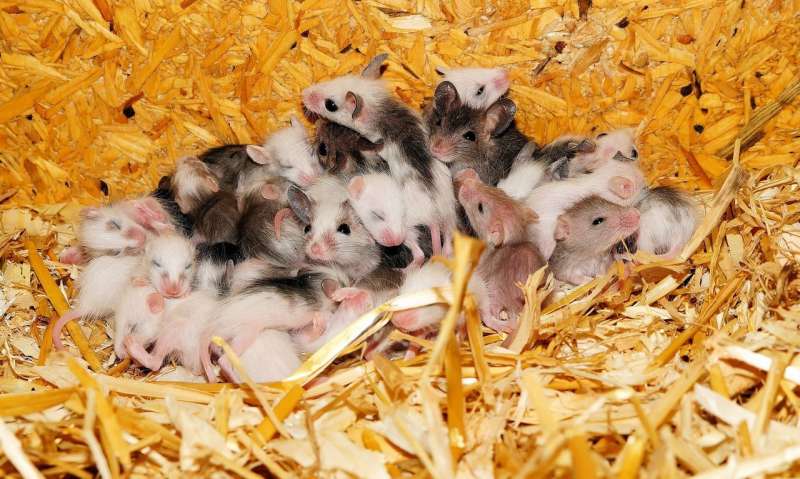Researchers identify brain circuitry that motivates mating in mice

A structure located at the base of the brain, the hypothalamus, orchestrates motivational states including hunger, thirst, and the motivation to mate. In a study published in the journal Nature, researchers at Beth Israel Deaconess Medical Center (BIDMC) uncovered the precise hypothalamic neurons that regulate the drive to engage in mating behaviors in mice. By identifying the molecular mechanism that sustains this motivational drive for many tens of minutes, the findings suggest a general principle about the neurobiology of motivation. The study also sets the stage for developing a targeted therapy to offset the sexual side effects linked to antidepressants that can discourage patients from treating mental illnesses.
"Brief investigation of females primes a male's interest to mate for tens of minutes, while a single successful mating triggers satiety that gradually recovers over days," said corresponding author Mark L. Andermann, Ph.D., professor of medicine at BIDMC and Harvard Medical School. "The neurotransmitter dopamine is typically studied in reward-related brain circuits. For decades, dopamine was also known to act on mating-related brain regions. However, the exact neuronal source of this dopamine remained unknown. Our study explains how dopamine translates a brief 30-second exposure to a female mouse into sustained changes in the male mouse's brain."
Building on Andermann and colleagues' previous investigations into the brain circuitry that governs hunger and thirst, the team found that mating drive is controlled by specialized dopamine-releasing neurons in the hypothalamus. During investigations of females, dopamine release leads to sustained biochemical signaling in the mating circuit that underlies the persistent increase in the motivation to mate. Andermann and colleagues further showed that artificially stimulating or silencing these dopamine-releasing neurons could powerfully increase or decrease the drive to mate.
"Our study provides a foundation for addressing important questions, such as: How do these neurons control the gradual recovery from satiety across days, and how might they control mating drive in females?" said first author Stephen X. Zhang, a postdoctoral researcher in Andermann's lab. "Further, our findings may help explain how mating drive is altered by certain medications such as selective serotonin reuptake inhibitors (SSRIs)."
The researchers propose that elevated serotonin may act as a brake on dopamine signaling in mating-related circuits, thereby decreasing libido—a side effect that nearly 75 percent of patients taking SSRIs experience. The scientists suggest that future therapies could target the newly identified dopamine-releasing neurons that regulate the drive to mate to alleviate the problem, thereby eliminating a major reason patients discontinue taking antidepressant medications.
More information: Zhang, S.X. et al, Hypothalamic dopamine neurons motivate mating through persistent cAMP signalling, Nature (2021). doi.org/10.1038/s41586-021-03845-0

















